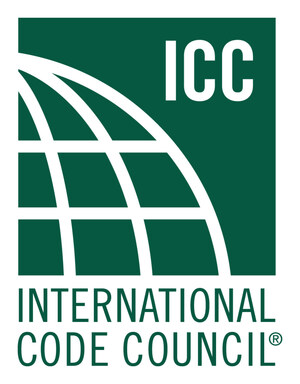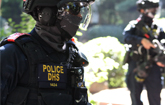
WASHINGTON, Aug. 30, 2011 /PRNewswire-USNewswire/ -- The 9/11 attacks on the World Trade Center identified a new, challenging frontier in public safety for the International Code Council, the primary developer of construction industry building safety codes used throughout the United States.
(Logo: http://photos.prnewswire.com/prnh/20100316/ICCLOGO)
"The hazards we historically evaluated and planned for in building safety and fire prevention codes to save lives and reduce property damage are largely measurable and predictable when applied to natural disasters ranging from tornadoes to hurricanes, earthquakes, floods and fires. But the events of 9/11 revealed the effects of terror attacks on buildings are neither quantifiable nor predictable. They are limited only by the expertise and resources available to those bent on destruction," said Gary Lewis, who for several years chaired the International Code Council Ad Hoc Committee on Terrorism-Resistant Buildings.
Among the experts serving on the committee created to address the 9/11 tragedy were code enforcement officials representing building and fire departments, design professionals and fire protection engineers, including Lewis who is the Chief Inspector for Summit, N.J., and has been in code enforcement for more than 30 years. The committee finished its work in May 2010.
The International Code Council is an association dedicated to helping the building safety community and construction industry provide safe, sustainable and affordable homes and buildings.
The nation's building and fire codes historically have been responsive and re-evaluated to address disasters such as the 1906 San Francisco earthquake, 1911 New York City Triangle Shirtwaist fire and the more recent Hurricane Katrina. Changes to the International Codes as a result of 9/11 impact elevator access, stairways, a higher standard for fire resistance, and self-luminous exit pathway markings.
"ICC evaluated the recommendations related to model codes, and initiated code change proposals designed to mitigate the effects of a terror event in case preventive measures such as governmental intelligence activities or building security somehow failed," Lewis said. "The code change proposals were not all successful, although many were incorporated. Some that were not prompted activity in other areas such as structural design to address the concerns. Some of the code change proposals resulted in higher construction costs, but others were so simple they had little or no cost impact, but great potential benefits."
EDITORS: For specifics on code changes as a result of 9/11, go to www.iccsafe.org/911Changes.
SOURCE International Code Council






Share this article